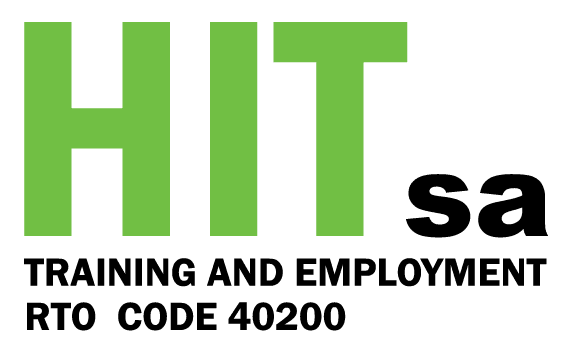HITsa Training and Employment – Policy and Procedure
Customer complaints, grievances and appeals
No: HITP0001/12
Issued: 09.01.2006
Reviewed: 10.01.2022
Purpose:
HITsa Training and Employment is committed to providing customers with training of the highest possible quality.
- This sets out the procedures that will be followed in response to a customer complaint and/or grievance. It is designed to ensure that there is a transparent process in place when dealing with complaints and/or grievances.
Areas affected:
HITsa Training and Employment
General:
- the procedures used to review and resolve complaints or grievances are fair and must be seen to be fair
- confidentiality will be respected for all parties, unless the use of the information is authorised by law
- staff involved in resolving complaints or grievances will act fairly at all times and ensure that conclusions will be based on a fair hearing of each point of view
- there will be no reprisals or any disadvantage arising as a result of a customer making a complaint or grievance in good faith
- complaints or grievances are handled in a timely manner with achievable deadlines specified for each stage in the resolution process
- any customer who makes a complaint or grievance and any staff member or customer on whom the complaint or grievance has a direct impact, is regularly informed of the progress of the matter
- where the complainant is not satisfied with the outcome proposed by the decision maker, the customer is entitled to seek a review, either on procedural or substantive grounds, from a higher internal body or an appropriate external agency
Types of grievances
Academic grievances – these are usually complaints or appeals against academic decisions. They include but are not limited to
- academic or assessment decisions
- a decision that affects an individual or group
- selection or admission decisions
- content or structure of academic programs, nature of teaching, or assessment issues relating to authorship and intellectual property
Administrative grievances – these relate to decisions and actions associated with administrative or academic services. They include but are not limited to
- administration of policies, procedures and rules by administrative and student support groups, faculties and departments
- a decision by an administrative staff member that affects an individual or group
- access to HITsa resources and facilities
Treatment – these relate to actions of a staff member and/or student that affects an individual or group.
Whistleblowers Protection Act – This act provides protection where an appropriate complaint or disclosure of public interest information by an employee or member of the public is made to a senior officer or identified external authorities. This could include an illegal activity, irregular or un-authorised use of public money, substantial mismanagement of public resources, conduct that causes a substantial risk to public health, safety or the environment, or a public officer’s maladministration or significant waste in or in relation to the performance of official functions.
Grounds for complaint or grievance
Without limiting the circumstances which may give rise to a complaint or grievance, a customer has valid grounds for making a complaint or grievance or lodging an appeal against a decision made in relation to a complaint or grievance, where the customer considers he/she has been adversely affected by one or more of the following
- improper, irregular or negligent conduct by HITsa staff
- failure by a HITsa staff member to act fairly
- a decision that has been made without sufficient consideration to facts, evidence or circumstances of specific relevance to the student
- failure by HITsa to make a decision within a timely manner
- a penalty that, where applied, is or would be too harsh
Procedures for the handling and resolution of complaints and grievances
Informal resolution often proves to be a quick and effective solution to complaints and may be more likely to assist in the maintenance of relationships. Where appropriate, complainants are encouraged to resolve the complaint themselves or through the resolution option outlined. This option may not be appropriate for more serious matters.
Complainants may choose to deal with the issue themselves by;
Discussing the behaviour or administrative decision which they find unfair or offensive with the respondent and asking them to stop or review the decision. Complainants can discuss this course of action with a senior officer who will, if requested, accompany the complainant when they approach the person concerned.
Mediation on an informal level will only be initiated at the request and/or agreement of both the complainant and respondent. Mediation aims to assist the complainant and the respondent reach a resolution agreement. It is not an adversarial process and does not involve proving guilt or instituting punishment. The following principles will be observed during informal mediation
Only the complainant, respondent, the Mediator and contact/support people will be present at the mediation session. The complainant and respondent may have a contact/support person (usually one per person) who is willing to abide by mediation guidelines and has no direct involvement with the complaint.
If after informal mediation the complainant still feels aggrieved, they maintain the right to make a formal complaint, in writing, to the Executive Officer.
Formal Resolution
While a complainant is encouraged to resolve their complaint informally, they may, at any time, choose to lodge a formal written complaint with the Executive Officer. The written complaint should include appropriate details complaint. Once a written complaint is received it will be determined whether the complaint has substance and appropriate action will be taken to resolve the situation.
The Executive Officer will acknowledge all written complaints in a timely fashion and respond to a written complaint within 7 days to acknowledge receipt and how this will be acted upon and the timeframe.
No mediation will be offered where
- either the complainant or the respondent refuse to engage in formal mediation
- a customer lodges a formal complaint of discrimination or harassment against a staff member (s)
- the allegation is of a serious nature and disciplinary action may proceed
- it is determined that the basis of the complaint constitutes a criminal offence
Mediation will only proceed with the agreement of both parties and a written report will be prepared including information such as
- the initial outcome of the mediation process
- the review dates
- any administrative arrangements or requirements which arise from the agreement
- the long term success of the mediated agreement following the review dates
- If mediation has failed request that formal investigation be initiated
Formal Investigation
If mediation has failed or is not an appropriate option the Executive Officer will inform, by letter, both the complainant and the respondent that an investigation has been initiated.
The Investigating Officer (that is a Senior Officer or an external investigator) will
- establish the facts by interviewing the complainant, the respondent(s) and any other relevant witnesses individually (each of the parties to the complaint must be informed that they have the right to have a contact/support person present during interview)
- inform the complainant and respondent that disciplinary action may be taken as a result of the investigation
- conduct the interview privately and maintain confidentiality
- caution all parties of the need to maintain confidentiality
- where necessary consult with Crown Law, the Promotion and Grievance Appeal Tribunal or the Equal Opportunity Commission
- provide a written report making recommendations to the Executive Officer
Complaint Resolution Outcomes
Following the receipt of a written report the Executive Officer may provide the complainant and the respondent with the results of the investigation and provide them with an opportunity to respond to the report. The Executive Officer will then determine the matter.
In determining the matter, the Executive Officer may require that Company policies, procedures and programs be amended or that person(s) be instructed to attend appropriate training programs.
Disciplinary Action
Disciplinary action may include
- have a warning or a formal record of the offence placed on their personal file
- be temporarily suspended without pay, or dismissed
Roles and responsibilities
Executive Officer – The Executive Officer or delegate has a responsibility to
- attempt to resolve complaints
- determine disciplinary matters
Board of Directors – Directors have a responsibility to
- be familiar with relevant Government acts, regulations and awards and Departmental policies, administrative instructions, guidelines and complaint resolution procedures
- ensure appropriate management practices are instituted
- support HIT’s complaint resolution procedure
- ensure confidentiality at all times
- ensure there is no victimisation of complainants, respondents, witnesses or anyone involved in the complaint resolution process
Senior Officers – Senior Officers who investigate formal complaints have a responsibility to
- remain impartial and independent
- follow the principles of natural justice
- ensure confidentiality at all times
- ensure there is no victimisation of complainants, respondents, witnesses or anyone involved in the complaint resolution procedure
- treat all complaints seriously and investigate them promptly and sensitively
Mediators – The role of a mediator is to
- fully explain the mediation process to both the complainant and the respondent(s)
- facilitate an agreement between the complainant and the respondent(s)
- notify management of any administrative or management arrangements which arise from the mediation of a formal agreement
- notify the senior officer responsible for managing the formal complaint process of the outcomes of a formal mediation
Record Keeping
It is advisable that personal notes are retained. It is essential that
- people who are experiencing unfair treatment, discrimination or harassment record the dates, places and details of every episode as well as meetings and any mediation agreement that is reached
- those people who have been complained against document similar details as those of the complainant
HITsa will keep formal records concerning all complaints and grievances. These records are confidential and are stored within the Executive Officer’s office.













